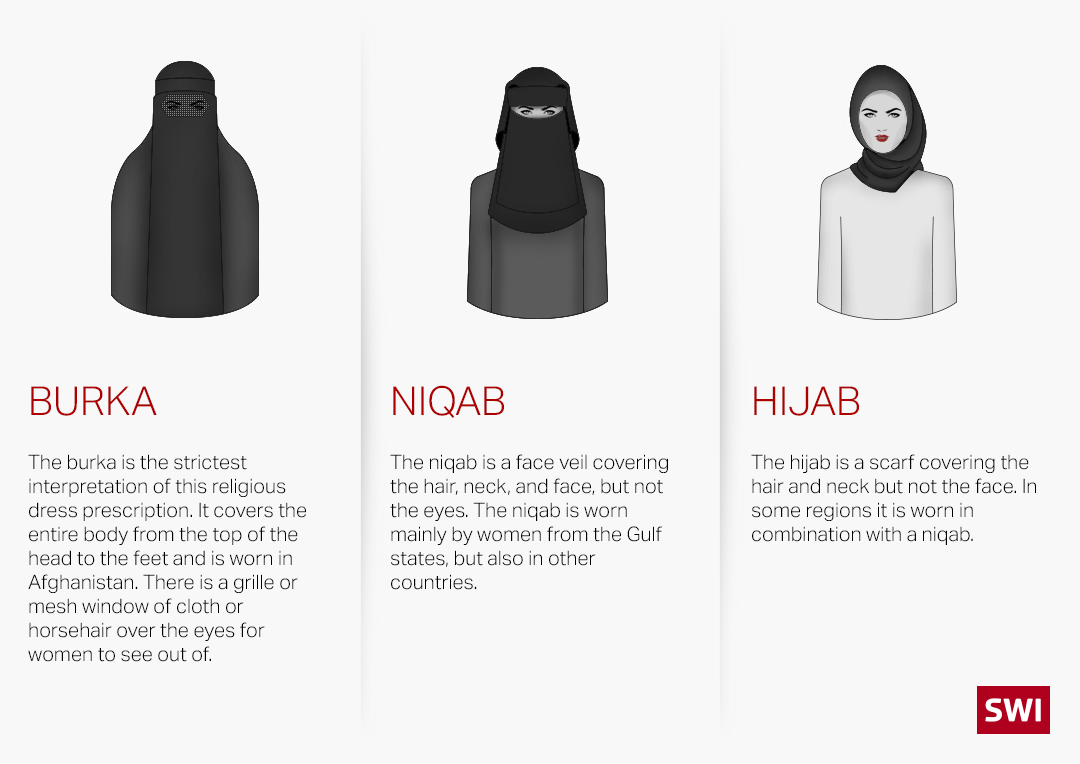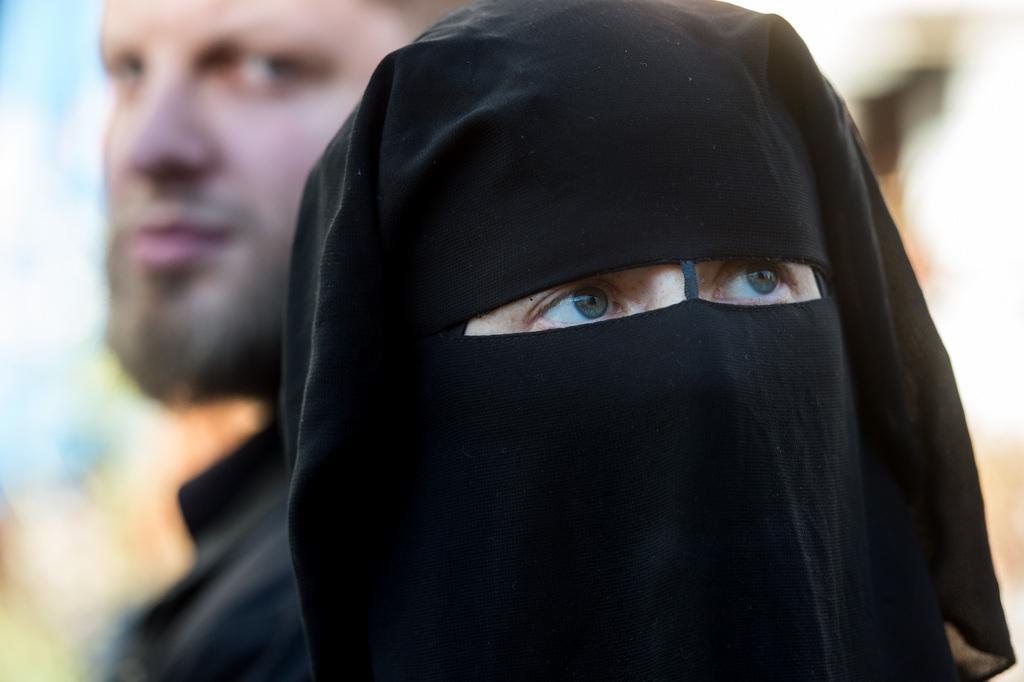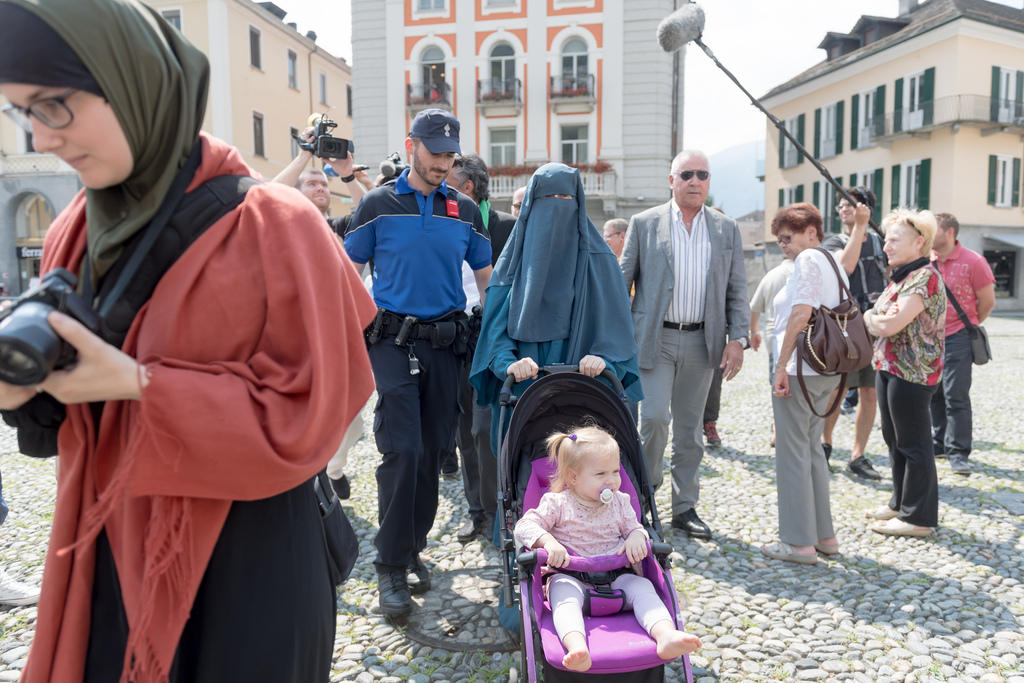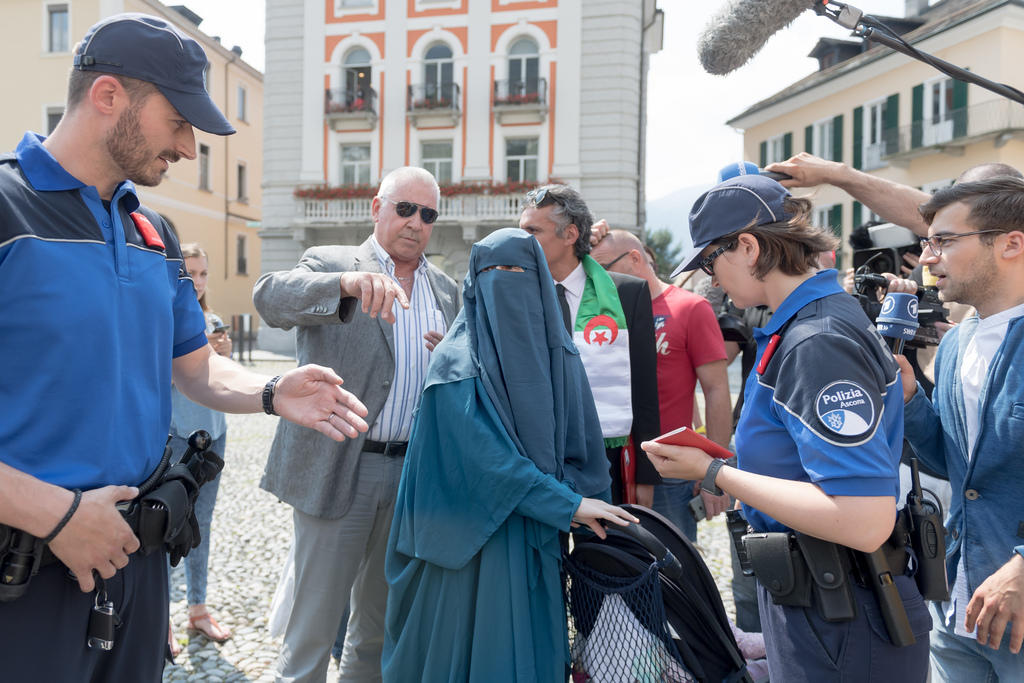Tourism fears over Ticino burka ban not realised

A year after the canton of Ticino adopted Switzerland’s only burka ban, the fallout from that decision is much less than feared –with no let-up in tourism from Arab countries.
There has even been a slight increase in guests from Arab countries – up nearly 2% for 2016 from the previous year – per Ticino’s tourismExternal link figures. And few people wear a burka in the canton, tourism officials noted; Arab tourists make up just 2% of overall guests there.
The police had rare occasion to enforce the ban. For the year, they had only seven complaints about “veiling in the public area”, the cantonal government’s general secretary, Luca Filippini, told German news agency DPA.
There were fewer than a dozen instances in which veiled women in Lugano and Mendrisio were asked to conform to the measures.

Voters in Italian-speaking TicinoExternal linkvoted in favour of the ban in 2013, but the law did not come into force until July 1, 2016. It outlaws clothing that covers the face, a first in Switzerland. A fine of up to CHF1,000 ($1,403) can be imposed.
With its Mediterranean climate where palms and citrus trees grow, Ticino had in recent years targeted Arab tourists who are used to similar environments as a way of partially making up for a significant decline in the number of German-speaking Swiss tourists and Germans who visited in the past few years.
After the burka ban vote, local business people, including hoteliers, feared the worst.
Swiss-wide ban?
Ticino remains the only canton to ban face-covering, after the canton of Glarus rejected such a move in May 2017.
On the national level, parliament rejected a motion for a Swiss-wide ban. The right-wing Swiss People’s Party, however, is collecting signatures to force a people’s initiative on the issue. Whether or not the party obtained enough signatures to force a nationwide vote will be known in September.
In 2010, France became the first European country to ban the full-face Islamic veil in public places. The European Court of Human Rights has since upheld the law. Similar bans were imposed in Belgium and in several places in Italy, Russia and Spain.

In compliance with the JTI standards
More: SWI swissinfo.ch certified by the Journalism Trust Initiative











You can find an overview of ongoing debates with our journalists here . Please join us!
If you want to start a conversation about a topic raised in this article or want to report factual errors, email us at english@swissinfo.ch.